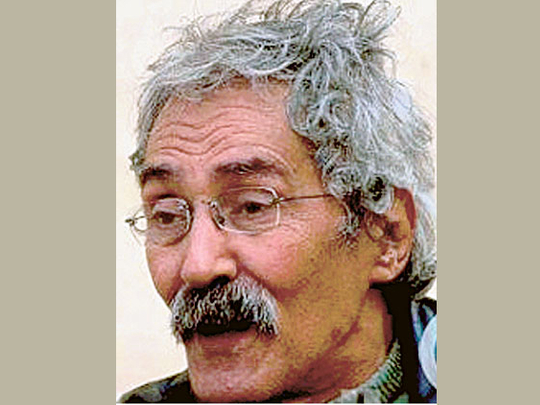
Cairo: With a literary career spanning more than four decades, Egyptian writer Ebrahim Aslan, who died on Saturday at the age of 77, was noted for scarce-yet-evocative output. Since his first collection of short stories “The Lake of Evening” which was published in the early 1970s, Aslan has impressed critics with an innovative style plumbing the depths of the human psyche.
“His first collection broke a new ground in the art of writing Arabic short stories,” says his colleague Ebrahim Abdel Majuid. “He produced few works because he was like an architect who always searched for fresh blocks to build each story of hs,” adds Abdel Majuid. “This process took a long time, but ensured him an unrivalled position in the realm of Arabic writing.”
Born in the Nile Delta province of Gharibya in March 1935, Aslan left with his family for Cairo where they lived many years in the working-class areas of Imbaba and Kit Kat. The two districts inspired most of his fiction. He also worked for some time as a postman, a job that enriched his insight into the life of the people, mainly the poor. His novel “The Heron” was published in 1983, generating critical acclaims. The Arab Writers’ Union listed it among the best 100 Arabic best novels in the 20th century. It was made into a blockbuster film entitled “Kit Kat” in 1991.
Another novel by Aslan, “The Nile Sparrows”, appearing in 1999, was turned into an award-winning film of the same title. “His stories faithfully followed the lives of the poor, good-hearted people, whose only dream was to earn an honest livelihood,” says Egyptian novelist Foud Qandil.
Aslan was not fond of the spotlight, according to close friends. But in 2000, he was sucked into a violent crisis when he published “The Banquet of Seaweed”, a novel by Syrian writer Haider Haider.
The novel was slammed as blasphemous by Egypt’s Islamists who staged massive protests and demanded it be banned. Aslan quit after the authorities probed him over the novel. In his final years, he wrote articles in several Arabic newspapers, including the Egyptian semi-official Al-Ahram.










